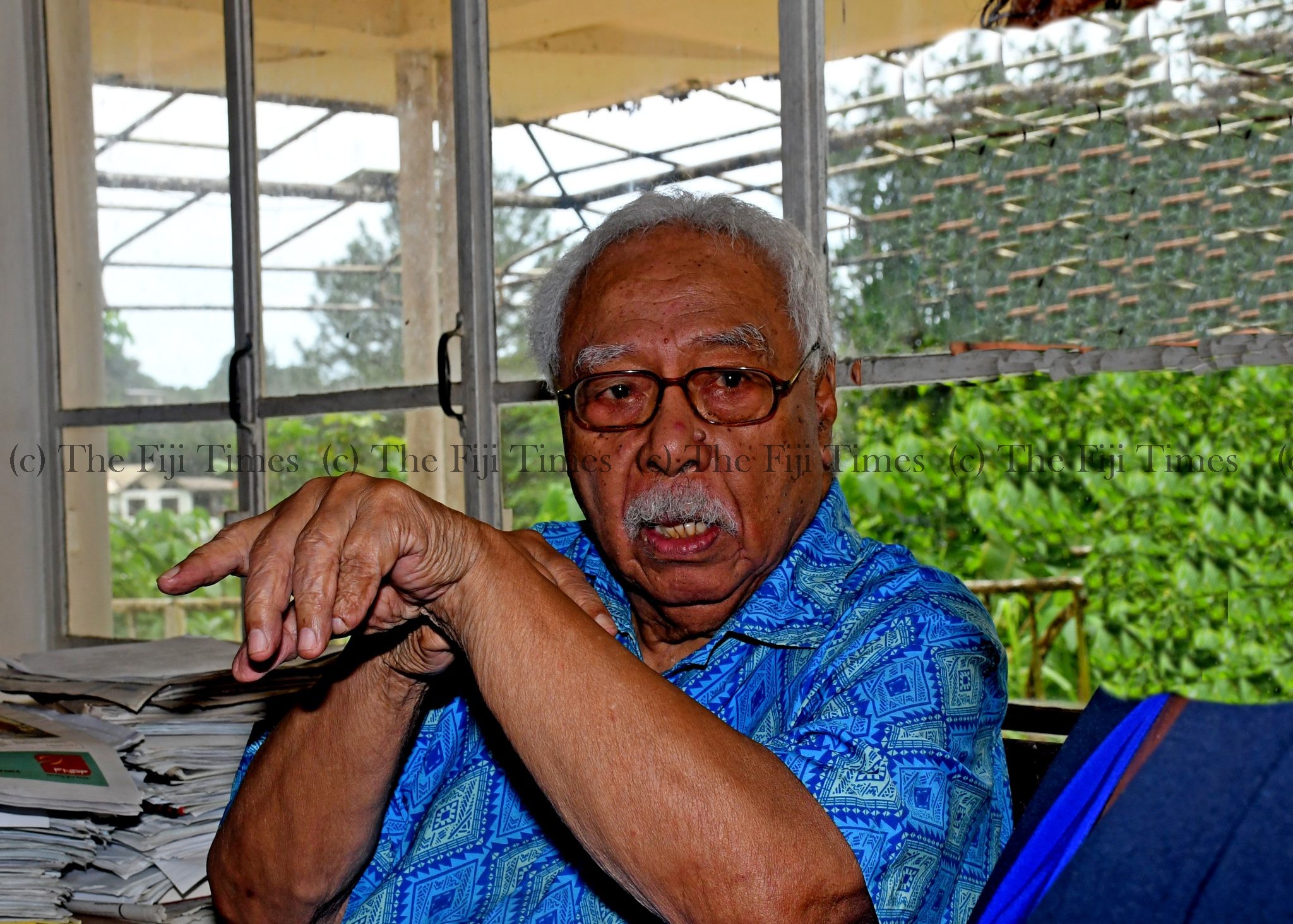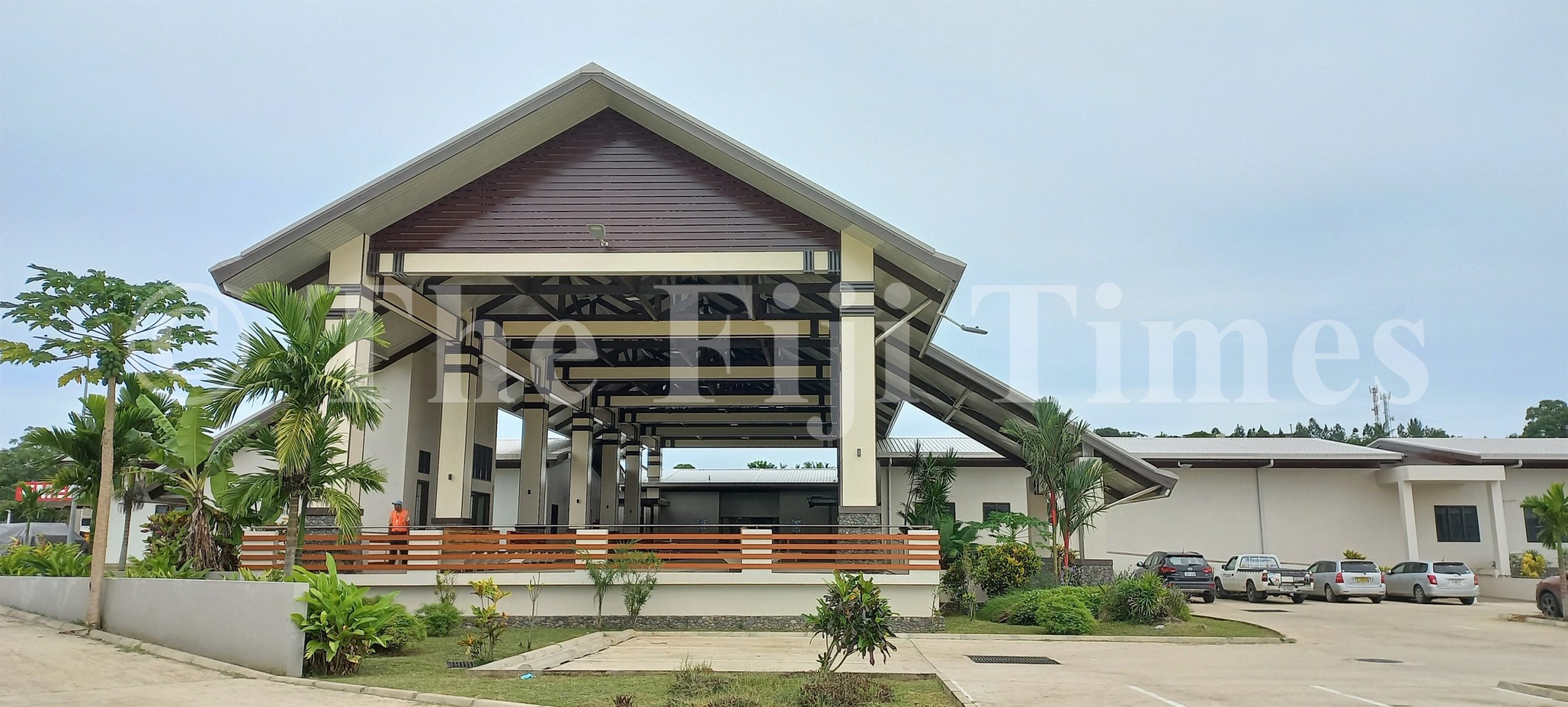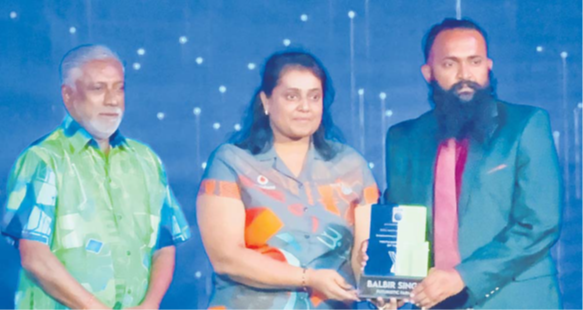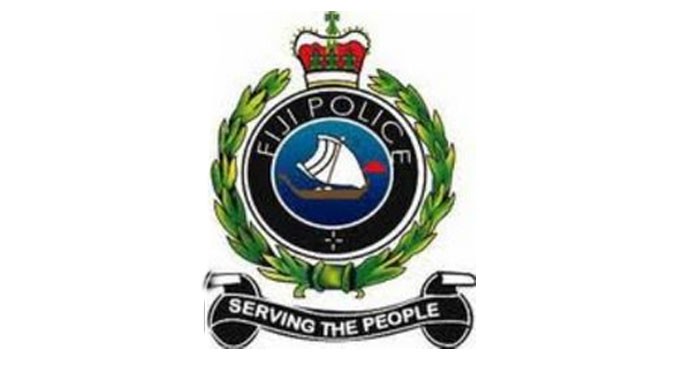A former top civil servant who served five successive Fijian prime ministers has broken his silence on the Commission of Inquiry into the controversial appointment of Barbara Malimali as FICAC commissioner describing the saga as a cautionary tale for public office holders. In an exclusive interview with The Fiji Times, Jioji Kotobalavu, now a public law lecturer at the University of Fiji, offered a constitutional lens into the dismissal of former attorney-general Graham Leung, the doctrine of non-justiciability, and what he says was a “failure to act in the public interest”. Mr Kotobalavu says that while Mr Leung may not have broken the law, his conduct as Attorney-General fell short of the constitutional standard of professional integrity expected of him. He defended the Prime Minister’s authority to dismiss the former A-G, explained why courts cannot interfere with such decisions, and warned that permanent secretaries and ministers alike must uphold merit, fairness and probity in all official appointments.
The Fiji Times: Publicly commenting about his dismissal as Attorney-General, Graham Leung said he accepted the decision of the Prime Minister, acknowledging that Prime Minister Rabuka has full and sole authority under the 2013 Constitution to appoint and dismiss ministers and this cannot be challenged in a court of law or tribunal. Can you please explain to our readers why this is so, whereas a public service official such as a permanent secretary who is dismissed by the Public Service Commission has the constitutional right to appeal the dismissal to the Public Service Disciplinary Tribunal and from there to apply to the High Court for judicial review.
Jioji Kotobalavu: There is a constitutional doctrine that applies to the appointment and dismissal of ministers. It is referred to as justiciability. This doctrine derives from the rule of law and the separation of powers between and among Parliament, the Executive and the Courts, as the three main institutions of government under our Constitution. Parliament makes laws for the State, the Executive comprising the President as head of State, the Prime Minister as head of government, and Cabinet chaired by the Prime Minister, decide Government policies and implement these policies and the laws of the State, and the Courts interpret the laws of the State.
In carrying out their respective functions and responsibilities, these three institutions of government have adopted this doctrine of non-justiciability to respect each other’s jurisdiction and not to interfere in how they exercise their separate constitutional powers.
For example, the Courts will not consider an application for judicial review of the dismissal of a minister by the Prime Minister, or the expulsion by the Speaker of an MP, in the exercise of their powers or jurisdiction under the Constitution. Likewise, Parliament and the Executive will not interfere in the exercise by the courts of their jurisdiction conferred upon them under the Constitution.
The Fiji Times: Mr Leung has criticised the Commission of Inquiry into the appointment of Ms Barbara Malimali by the Judicial Services Commission as FICAC commissioner as a “travesty of justice” and highlighting that no law was broken. Do you have any comments?
Jioji Kotobalavu: I have just read a copy of the Commission of Inquiry report. According to the report, the Attorney-General was one of only three persons who knew that Ms Malimali was under investigation for an alleged abuse of office allegations. The other two were the President and the Prime Minister.
According to the COI report [at paragraphs 47-49] Mr Leung was advised by Ms Puleiwai at FICAC that that allegation against Ms Malimali was serious and FICAC “needed a little bit more time to complete the investigation”.
Mr Leung advised the chairman of the Judicial Services Commission to “hold off” on Ms Malimali’s appointment but then changed his mind after receiving a letter of complaint from members of the Electoral Commission of Fiji about Ms Puleiwai and her FICAC team removing documents from the Electoral Commission’s office.
According to the COI report [at paragraph. 48], it was then that Mr Leung advised the Chief Justice as chair of the Judicial Services Commission that it was “okay” to proceed with Ms Malimali’s appointment.
So, the issue to ponder is whether it was right for the Attorney-General to advise the chairman of the JSC that it was okay for the JSC to proceed with Ms Malimali’s appointment when the FICAC investigation into alleged abuse of office by her was still ongoing.
In my view, the central issue that is involved here is more than the rule of law. It is about ensuring public trust and confidence in the integrity of public institutions mandated by them through Parliament to ensure that there is no corruption and abuse in the exercise of public power of decision-making.
The Attorney-General is entrusted with this responsibility. Clearly, in this instance, the public interest would have been better served if Mr Leung had advised the chairman of the JSC to continue holding off on making a substantive appointment until the FICAC investigation was completed.
He failed in this, and as a direct consequence he lost the confidence of the Prime Minister.
What happened in this case should be a salutary lesson to all public office holders, including ministers, permanent secretaries and others on how to properly exercise the powers of decision-making conferred on them by our Constitution.
Section 16 of the 2013 Constitution is a reminder to all that powers conferred by statutes and regulations must be exercised strictly according to law and the requirements of procedural fairness and natural justice. In various case judgments, the superior courts in Fiji have always emphasised that public bodies must exercise the powers given to them by Parliament in good faith and in the public interest.
The Fiji Times: You explained the doctrine of non-justiciability, in relation to ministerial dismissal. Given this, do you believe the Prime Minister’s dismissal of Mr Leung was constitutionally appropriate but politically expedient? Could this set a precedent for using COI findings as a basis for removing cabinet ministers without legal challenge?
Jioji Kotobalavu: First of all, the Prime Minister is conferred under the Constitution with full powers to appoint and dismiss ministers. Number two, according to the doctrine of non-justiciability, the three arms of government, meaning Parliament, the Executive and the Courts, have agreed that in the exercise of their respective jurisdiction, they are not to interfere with each other. They are to operate as independent entities and what should guide them is mutual deference, mutual respect, mutual confidence, in the exercise by each one of each jurisdiction. So that’s the principle of non-justiciability.
In this case, for ministers, like the power of defence, any decision taken by Cabinet on defence cannot be challenged in a court of law. Decision taken by the President on the prerogative of mercy cannot be challenged in a court of law. It falls under this doctrine.
It’s a doctrine that the courts formulate in order to make things work. Like, for example, an employment law between an employer and workers, they have a contract of service. So, the courts in adjudicating conflicts in employment between the employer and worker, have come forward with the common law doctrine that in dealing with a conflict between the employer and the worker, the two parties must deal with each other on the basis of mutual trust and confidence. That they must give all their best to resolve the issue, dispassionately, in the interests of both parties. That’s the background to this doctrine of non-justiciability — is to enable the three arms of government to work in harmony in carrying out their respective jurisdictions.
And therefore, it falls upon the authority, like in this case, the Prime Minister, to weigh carefully the circumstances under which he will make a decision to fire a minister. In this case (the PM) had clear evidence that whilst (Mr Leung) had not broken any law he did not act in the “public interest”. In that, whilst investigations into allegations of abuse of office by Ms Malimali were still pending (incomplete) he gave advice to the JSC, “go ahead and appoint her”. That was not in the public interest.
And in the respective functions, responsibilities assigned by the Prime Minister to each minister, the A-G is the guardian of the public interest. He may have broken no law, but it was not in the public interest for him to advise the JSC to go ahead with the appointment when an investigation for abuse of office by that person was still pending. They could have waited. It makes a lot of sense.
And he is absolutely correct — the Prime Minister. (This has) nothing to do with politics, nothing to do with this — (Mr Leung) failed to discharge the duties and responsibilities entrusted to him by the Prime Minister as Attorney-General, guardian of the rule of law, and guardian of the public interest. Very simple. It’s a good example for permanent secretaries that this can happen to you if you do not exercise your powers given to you very carefully. You must be very careful.
The Fiji Times: Mr Leung has called the COI a “travesty of justice” and says is politically motivated. Do you believe the structure and conduct of this particular commission upheld the principles of procedural fairness, particularly given its findings?
Jioji Kotobalavu: I have no competence to comment on the way in which the commission carried out this inquiry. All I can say is that Graham Leung cannot complain. He was interviewed, he was given every opportunity, okay, to state his case. That’s procedural fairness, that a person implicated or a person who is adversely affected by a decision, is given every opportunity to explain himself. He was given every opportunity to explain himself by the commission, he cannot complain. It’s not as if he was denied — he was not allowed to appear before the Commission of Inquiry. He appeared before the Commissioner to explain himself. How did the commission find out that he was one of only three that had knowledge about this extra additional abuse of office allegation against Ms Malimali? He knew.
The Fiji Times: You emphasised public trust and confidence. But if no law was broken, as Mr Leung argues, where should we draw the line between political accountability and legal culpability? Should ministers resign for “poor judgment”, even if they acted within the bounds of the law?
Jioji Kotobalavu: It’s up to each individual minister to make a judgment for him or herself, whether in particular instances, they acted honestly, with the higher standard of probity (and) professional integrity, within the portfolio responsibilities given by the Prime Minister. It’s up to the Prime Minister. They must be honest. If they feel that they have acted in a manner that is below the standard — they know is expected by the prime minister, they should go and see the Prime Minister say, “Sir, you know, I have a weakness, I’ve done this. I confess. You make a decision, I will accept”. That’s a relationship between the Prime Minister and minister.
It’s like the employer. You see, in the case of ministerial appointments, Mr Rabuka as Prime Minister is the employer, ministers are his employees because he appoints them. As explained, in employment law, the employer and employee must according to the courts, conduct themselves, when a dispute arises in a manner where they try to resolve an issue that arises in the working relationship on the basis of mutual confidence and trust. So, that’s up to dialogue, you know, Prime Minister Rabuka is a very reasonable person. He’s open. In the case of Mr Leung he obviously was satisfied that Mr Leung had fallen short of the standard expected of him to uphold the public interest.
The Fiji Times: Given the JSC proceeded with Ms Malimali’s appointment after receiving the A-G’s advice to go ahead, does the responsibility lie solely with Mr Leung or should the JSC also bear some accountability for not independently verifying the seriousness of the FICAC investigation?
Jioji Kotobalavu: Well, we go back to the starting point that there were only three persons who were informed by FICAC on the additional investigation into Ms Malimali — President, Prime Minister, and the A-G. It is not as if Ms Pulewai had also informed the chairman of the commission. She didn’t. The key communicator, the link, between the commission, Prime Minister, President, and the commission, was A-G. So, therefore the advice he tendered to the JSC was very important. The first one was right – “hold, don’t make a decision” but he got influenced by the five members of the Electoral Commission. Remember, they wrote a letter?
The Fiji Times: Mr Leung has suggested that the Electoral Commission members, such as Dr Atu Emberson-Bain were credible due to their standing and qualifications. Do you believe this justifies accepting their complaint without further investigation? particularly given Dr Emberson-Bain’s affiliation as a former Labour Party MP?
Jioji Kotobalavu: You go on the facts. The fact is the investigation was pending. Ms Pulewai said all we needed was a little bit more time. They could have deferred, said, you know, continue holding off the appointment — they need a little bit more time — they could have done that. That’s why I say, you must be a person of absolute integrity, probity, to resist those kinds of pressure, influences. There were influences. But if you’re the man in the middle — the AG — you stand your ground, “I am a person of absolute integrity, probity — I cannot be influenced if I believe the public interest is not being served”. He is the defender, the protector of the public interest, that powers of decision making should not be corrupted. It’s very interesting the interplay — the law, public interest, personal integrity, probity.
The Fiji Times: The report also indicates the Prime Minister and President also knew about the FICAC investigation (into Barbara Malimali). Should the COI have interrogated their roles more thoroughly? Was it correct to limit the scrutiny to Mr Leung’s actions?
Jioji Kotobalavu: It is the A-G, because the A-G is the link with the JSC. The Prime Minister has nothing to do with the JSC. In Government, the Civil Service, when there is a legal issue on which they have doubts, they need advice on their contacts — the office of the Solicitor-General for advice. For the executive government, the adviser on legal matters is the A-G. That’s why he’s in the Cabinet. On legal matters, like, should the JSC go ahead and make the decision when the investigation against the subject is still ongoing, he fell for influences. This is where I say, when you hold the public office, you must be a person of great honesty — I mean that’s how I survived; Ratu Mara, Rabuka, Qarase — you must be honest. There’s a lot of pressure to be honest because you’re subject to all kinds of influences.
The Fiji Times: You mention this should be a “salutary lesson” to office holders. What specific changes would you like to see in how public offices, particularly administerial and PS level, are trained on constitutional responsibilities and ethical governance?
Jioji Kotobalavu: This is why I at the invitation of the Public Service Commission, I have been talking to permanent secretaries (PS) meeting with PSs to advise them on how they should exercise their responsibility and powers, because under the 2013 Constitution, they have been given increased responsibility. (Under) the 1970, 1987 Constitutions, the powers of appointing civil servants were largely conferred on the Public Service Commission, it was centralised. What has happened is that the 2013 Constitution has decentralised this. It has decentralised the power of appointing public officers in the public service from the PSC to individual permanent secretaries – that’s number one.
Under the 2013 Constitution, the PSs have become the employers of staff in their ministry or department — no longer the PSC. Number two, the second change the 2013 Constitution has done is to politicise the civil service. You see, under the 1970, 1987 Constitution, we followed the British tradition. Clear separation between the civil service as the implementing arm of the executive government, and the executive government, meaning the elected government, separation of power. The only link was that the PSC had to consult and obtain the concurrence of the prime minister on appointments of PSs — that was the only link.
But now, under the 2013 Constitution, as I said, the first change, the power of appointing public service officers has shifted from the PSC to individual permanent secretaries.
Number two — very important — in making decisions on appointments, discipline, transfers, everything, staff establishment, the PS as employer must obtain the concurrence of the minister. Now the minister has a say. Now they are given a say in the Constitution. So therefore, in this changed background, where the PS is now, the employer, and he exercises his powers subject to the agreement of the minister, it is crucially important that they must know the law that governs appointments, discipline.
And what are the sources of law? First the Constitution — it guides, it provides guideline on merit. It must be merit, nothing to do with race, ethnicity, or religion — merit! Second, administrative law and employment law — they must know administrative law and employment law, essentially, it is summarised in Section 16 of the Constitution in exercising the powers conferred upon you either by Act of Parliament or the Constitution or by Regulation, you must do so with full awareness of the rights of a person, any person, any members of the public, or workers, or who is adversely affected by your decision, because under the law, that person also has rights. The right of appeal.
All this they must know. First, the nature of their power, the source of their power, the limit of their power of decision-making, and second, the rights of those people adversely affected by that decision he makes. He must know their rights under the law, both under administrative law and employment law. You can see that the challenge now on individual permanent secretaries is much, much bigger than when I was there. Because when I was there, management of staff, appointments were done by the PSC. Now they have to do it.
On top of that, working with ministers, policy and so on. And above all, like in the case of Graham Leung, they must do so with the highest standard of professional integrity. Make your decision strictly according to law and the courts have also emphasised always be conscious all the time that when you make a decision there is public interest.
The Fiji Times: Now that FICAC has reportedly confiscated the mobile phone of DPM Kamikamica, possibly in connection with the COI report. Do you believe the line between political fallout and criminal investigation is becoming dangerously blurred?
Jioji Kotobalavu: No, I don’t think so. There’s a clear separation. The Prime Minister knows that. Ministers are subject to investigation, you know, he will not stop that — that’s how the system works. Let the investigation proceed by the proper authorities; the police, the Office of the DPP or the FICAC. Let the investigation proceed now that the Commission of Inquiry has submitted its report and recommendations. He understands that. Let it proceed and wait and see what happens. There’s no politics in that.
n Mr Kotobalavu currently teaches public law at the University of Fiji JDP School of Law. The views he expresses are his own and neither The Fiji Times nor UNIFIJI bears any responsibility for them. It is intended only to give members of the public a better or clearer understanding of the issues discussed.






